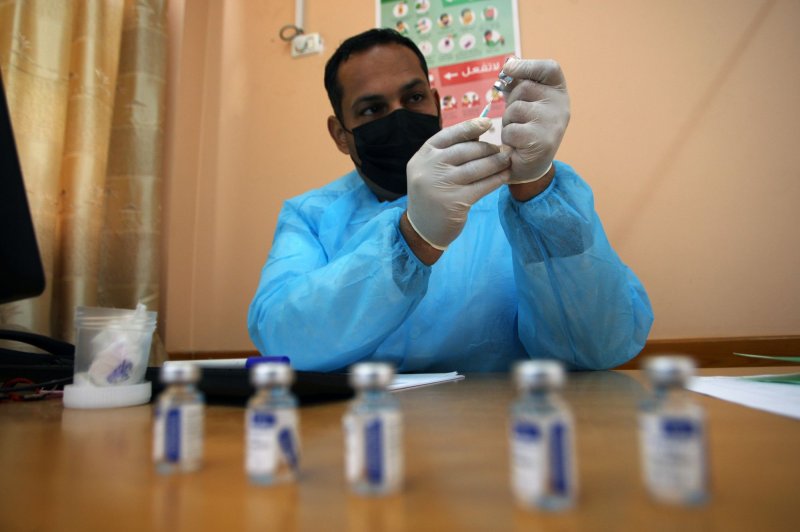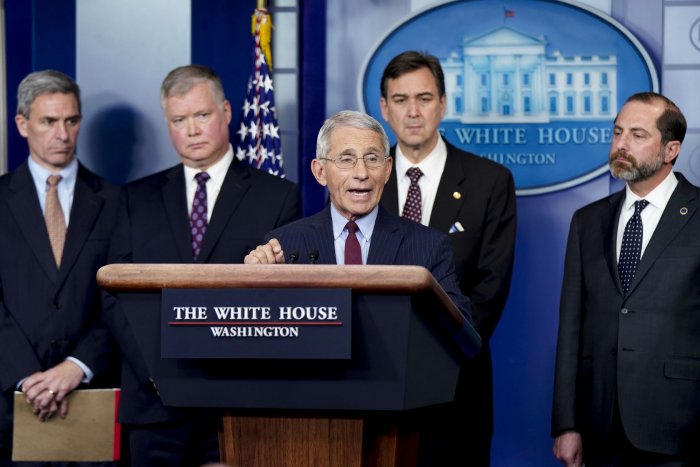1 of 5 | A United Nations Relief and Works Agency for Palestine Refugees worker prepares a shot of Russia's Sputnik V COVID-19 vaccine at a clinic for Palestinian refugees in the southern Gaza Strip on March 3. File Photo by Ismael Mohamad/UPI |
License Photo
May 6 (UPI) -- Russian health officials said Thursday the country's Sputnik V COVID-19 vaccine has been authorized as a single-dose shot, known as "Sputnik Light."
The Russian health ministry, Gamaleya National Research Center of Epidemiology and Microbiology and Russian Direct Investment Fund said the slimmed-down vaccine has shown to be 79% effective after 28 days.
"The single-dose regimen solves the challenge of immunizing large groups in a shorter time, which is especially important during the acute phase of the spread of coronavirus, achieving herd immunity faster," RDIF CEO Kirill Dmitriev said in a statement.
The new shot is effectively a repurposed first dose of the two-dose Sputnik V vaccine Russia rolled out last year.
Government officials said more than 20 million people worldwide have so far received an initial dose of the Sputnik V vaccine.
"Sputnik Light will help to prevent the spread of coronavirus through the faster immunization of larger population groups, as well as supporting high immunity levels in those who have already been infected previously," Alexander Gintsburg, director of the Gamaleya National Research Center of Epidemiology and Microbiology, added.
The vaccine, which has not been approved for use anywhere in Europe or the United States, has faced criticism and obstacles since it was announced last summer.
This week, officials rescinded approval in Brazil after saying the vector virus in the second dose is not inactive and can therefore multiply and cause illness. Russian officials have denied the accusation.
The RDIF said Brazil didn't conduct any original testing and misinterpreted data about the vaccine.
January 31, 2020
National Institutes of Health official Dr. Anthony Fauci (C) speaks about the coronavirus during a press briefing at the White House in Washington, D.C. Health and Human Services Secretary Alexander Azar (L) announced that the United States is declaring the virus a public health emergency and issued a federal quarantine order of 14 days for 195 Americans. Photo by Leigh Vogel/UPI |
License Photo
















